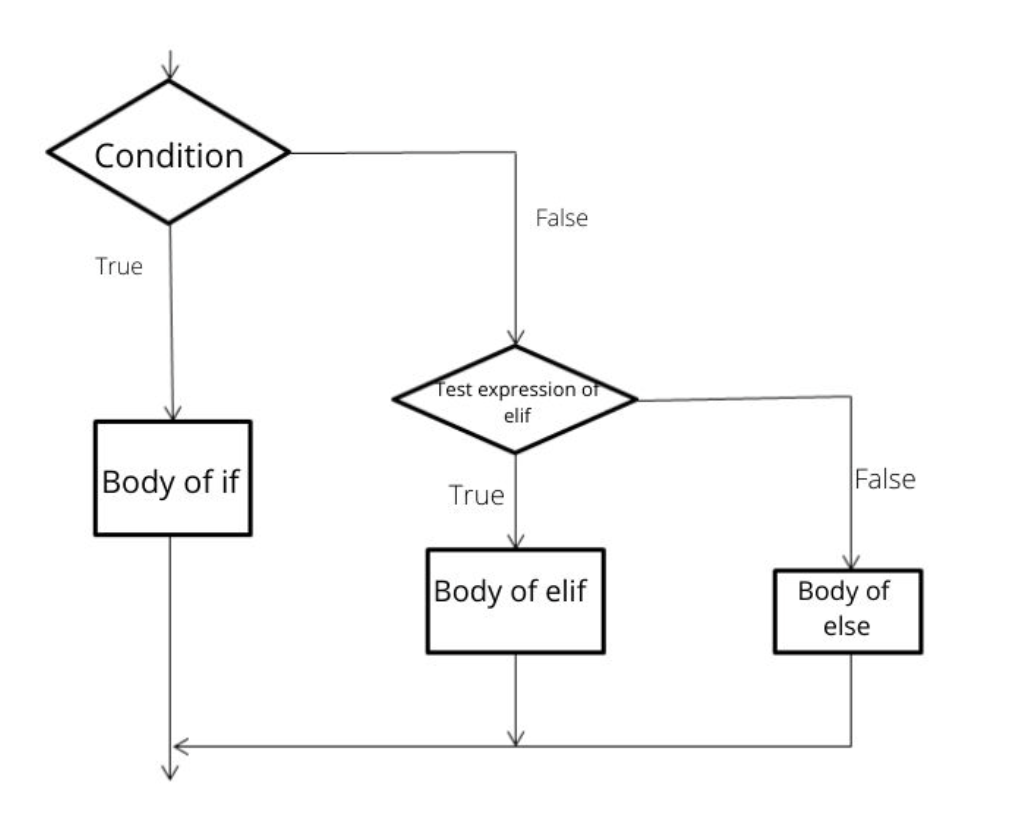The elif is short for else if. It allows us to check for multiple expressions.
if…elif…else are conditional statements that provide you with the decision making that is required when you want to execute code based on a particular condition. When you run into a situation where you have several conditions, you can place as many elif conditions as necessary between the if condition and the else condition.
The elif statement allows you to check multiple expressions for TRUE and execute a block of code as soon as one of the conditions evaluates to TRUE.
If the condition for if is False, it checks the condition of the next elif block and so on. If all the conditions are False, the body of else is executed. Only one block among the several if...elif...else blocks is executed according to the condition.
Syntax:
>>>if (condition):
Statement
>>>elif(condition):
Statement
>>>else(condition):
Statement
Flow Chart:

Example:
x = 5
if x % 2 == 0:
print('x is divisible by 2')
elif x % 3 == 0:
print('x is divisible by 3')
else:
print('x is neither divisible by 2 nor by 3 ')Output:
x is neither divisible by 2 nor by 3
- Log in to post comments